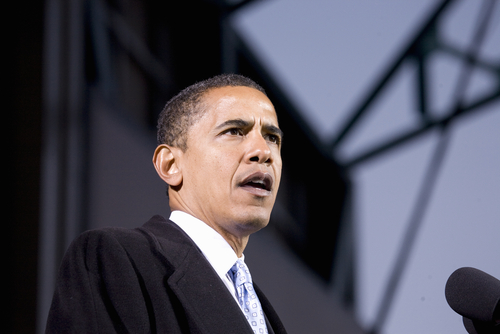
WASHINGTON—President Barack Obama on Thursday praised ally Australia as a trusted military partner whose co-operation is providing the U.S. with added reach in the Asia-Pacific region, but questions lingered about their differences on climate change.
Obama was speaking after a one-hour meeting with Australian Prime Minister Tony Abbott, who thanked Obama for the deeper engagement by the U.S. in the region. He said Australia will be “an utterly dependable ally of the United States.”
It was Abbott’s first White House visit since he was elected in September. The two leaders also discussed world security hotspots, their two countries’ involvement in a proposed trans-Pacific free trade pact and maritime disputes between China and Southeast Asian neighbours in the South China Sea.
“Obviously, both the United States and Australia have enormous trade relationships with China, and we both agree that it’s important to continue to see China prosper and rise, but what’s also important is that as China emerges as this great world power, that it also is helping to reinforce and abide by basic international law and norms,” Obama said.
Australia is hosting a new deployment of U.S. Marines—a concrete outcome of the Obama administration’s so-called Asia pivot. The two sides announced Thursday further defenceco-operation and the possibility of Australian contributions to missile defence in the region.
Obama said he and Abbott are improving the military relationship between the two countries that is giving the United States “additional reach throughout this very important part of the world,” and he noted that under Abbott, the Australian government has increased its defence budget.
Obama described Australia as one of a handful of countries that the U.S. can always count on. “And Aussies know how to fight, and I like having them in a foxhole if we’re in trouble. So I can’t think of a better partner,” he said.
The two leaders appear less in step, however, on the issue of climate change.
Neither leader mentioned it in their brief comments to reporters. But White House spokesman Jay Carney said they did discuss climate change in their private session and that Obama emphasized the need for countries to adopt “ambitious domestic climate policies as the basis of a strong international response.” He said Obama believes climate change should be discussed in November’s meeting of the Group of 20 industrialized and developing countries. Australia, which currently chairs the group, will host the meeting.
Last week, Obama announced bold plans to cut carbon dioxide emissions from power plants by nearly a third by 2030 from 2005 levels. The U.S. policy is intended to galvanize the response to global warming and spur emerging economies like China to take action.
Abbott has described those as sensible steps but has made clear that he doesn’t view the fight against global warming as a top priority and is set against action that could crimp Australian business. He plans to scrap Australia’s carbon tax on polluters and instead provide taxpayer-funded incentives for polluters to reduce their emissions.
In remarks to reporters Tuesday after visiting the New York Stock Exchange, Abbott said: “Is it (climate change) the most important issue the world faces right now? I don’t believe so. It is one of a number of significant issues that the world aces, and we will do our bit.”
Australian media have reported that Abbott is seeking to forge an alliance among right-leaning governments such as Britain and Canada—where he visited before arriving in the U.S.—and push against global moves to introduce carbon pricing.
Australia is one of the world’s worst pollution emitters per capita, largely because it relies heavily on abundant reserves of cheap coal for electricity. The U.S. is the biggest source of global carbon dioxide emissions after China.
Associated Press writer Rod McGuirk in Canberra, Australia, contributed to this report.